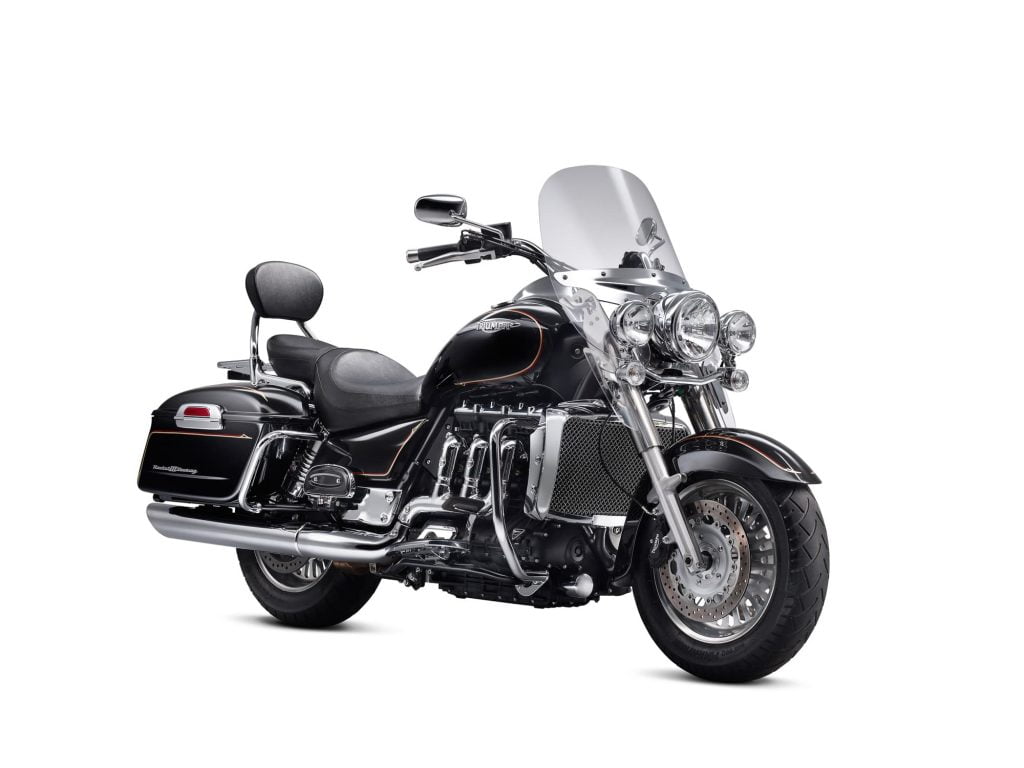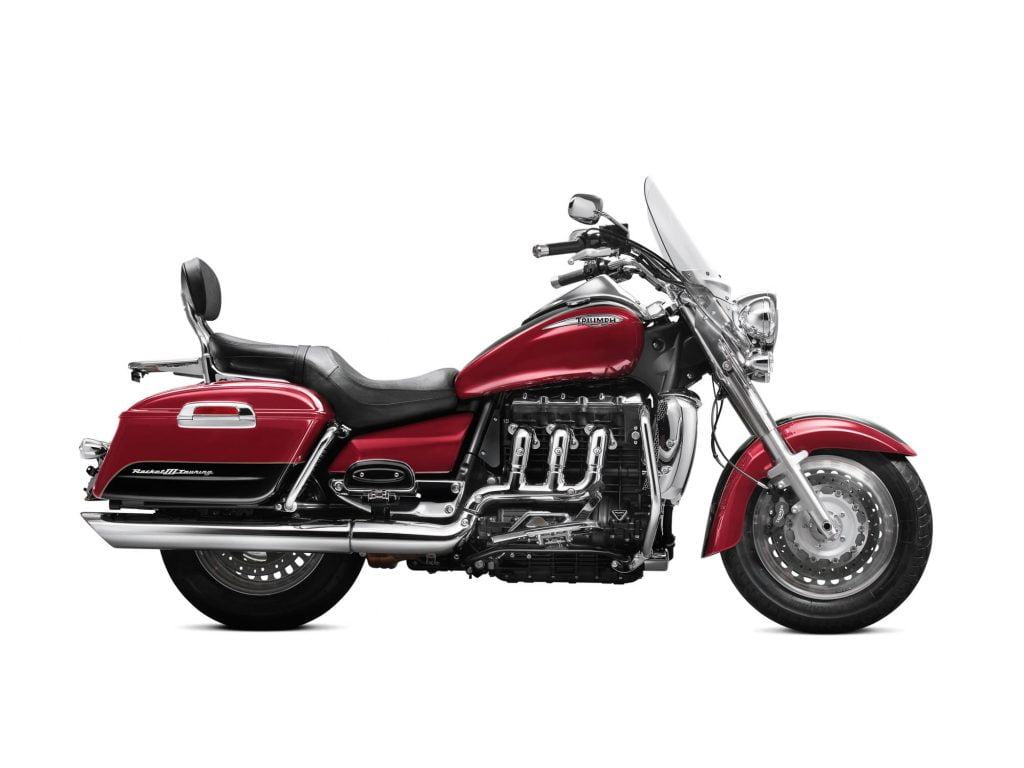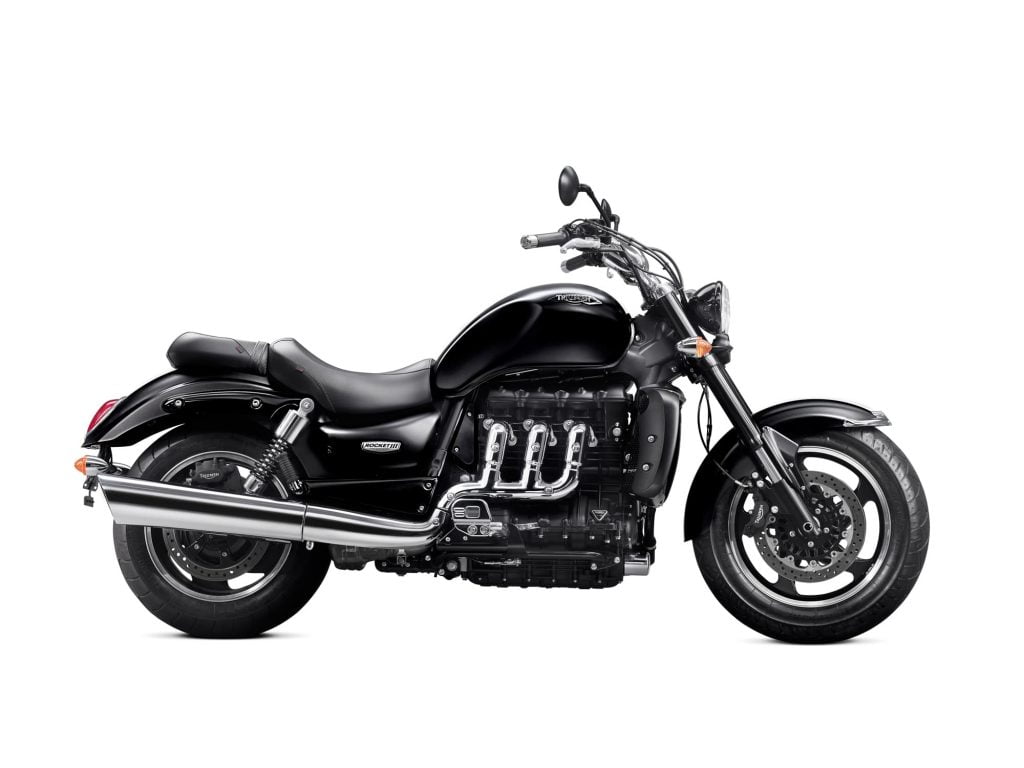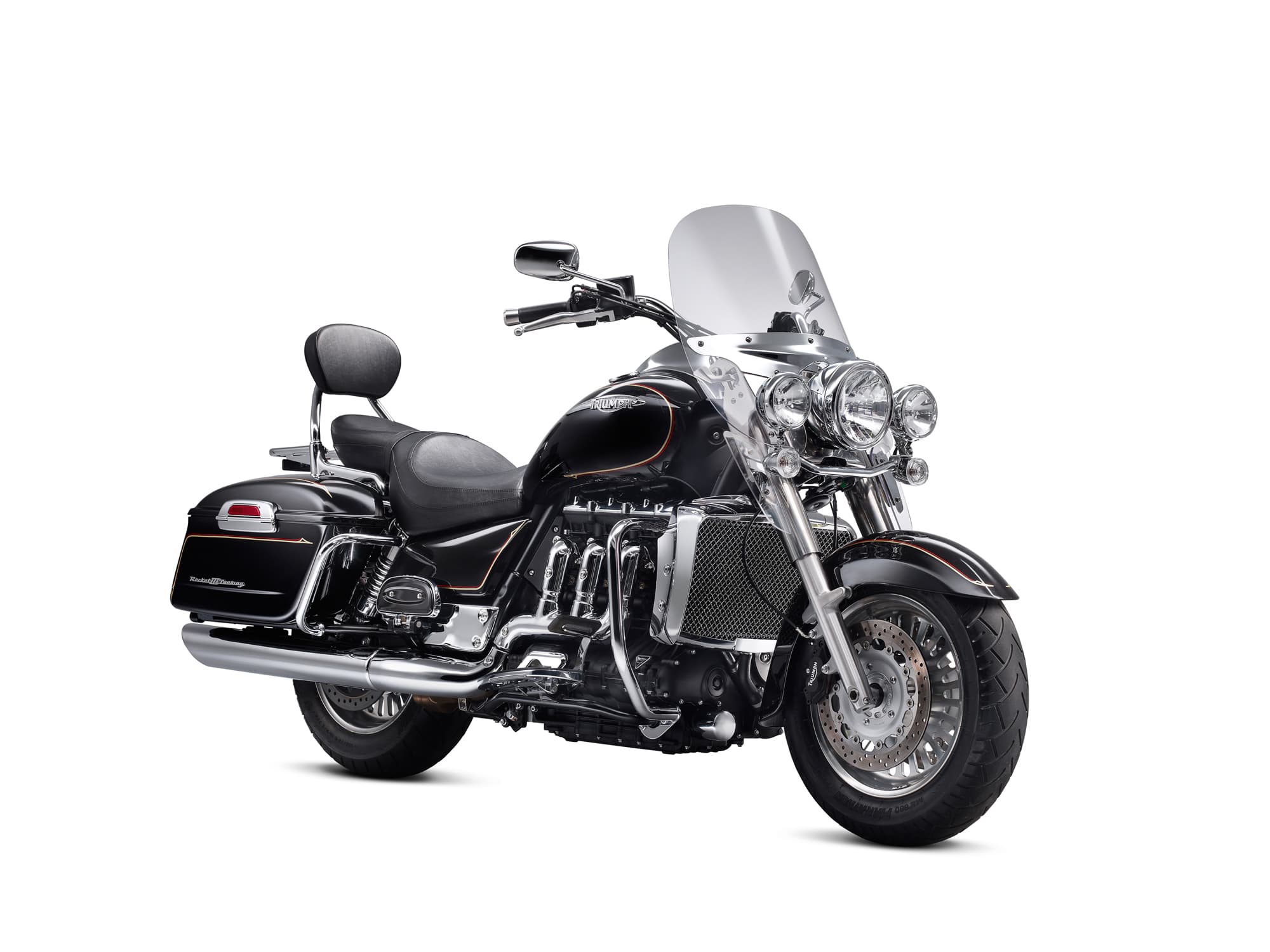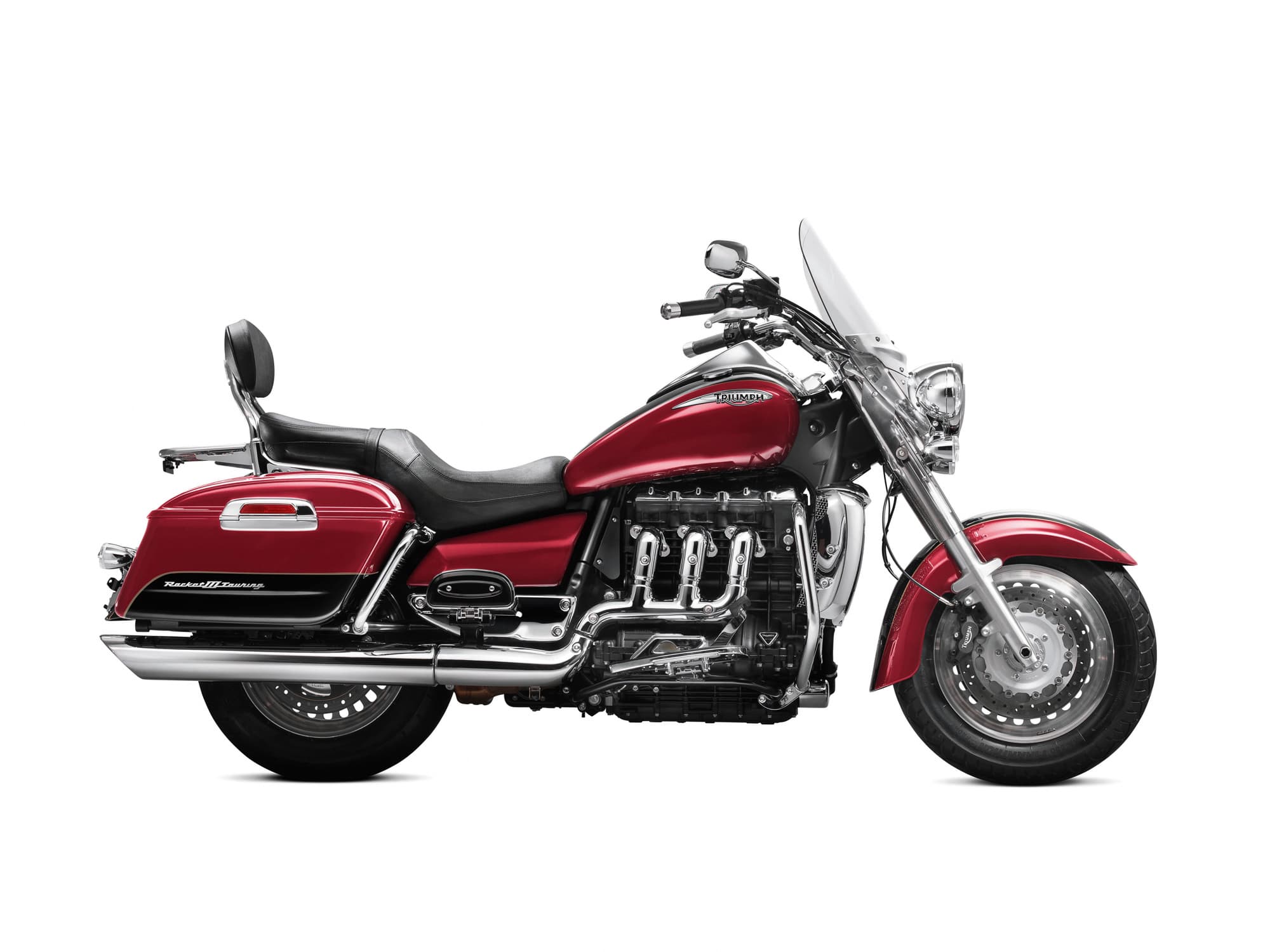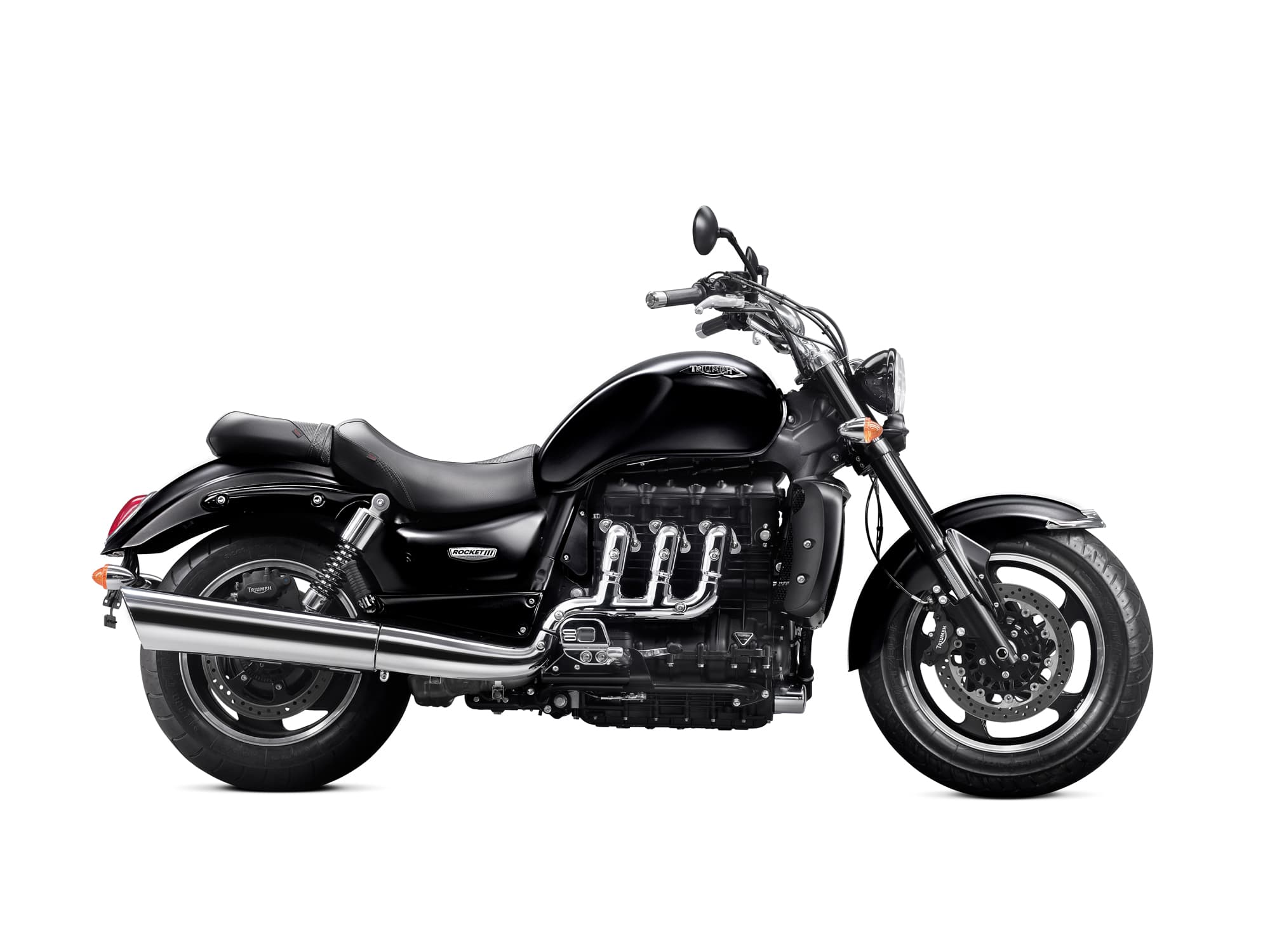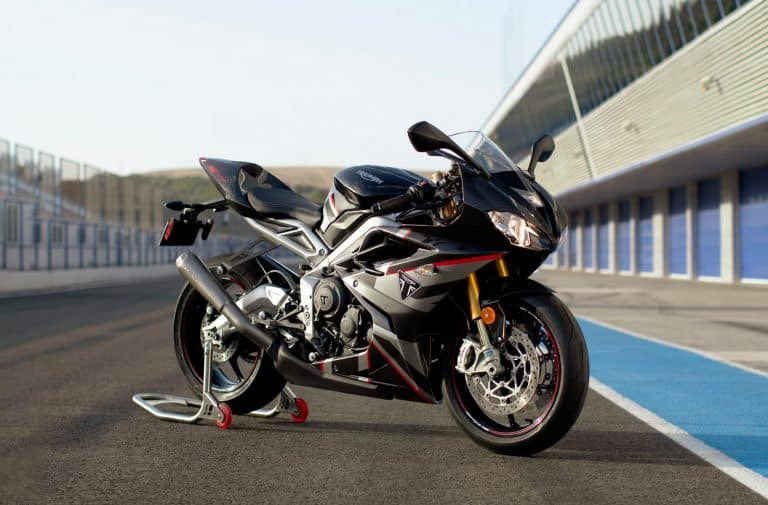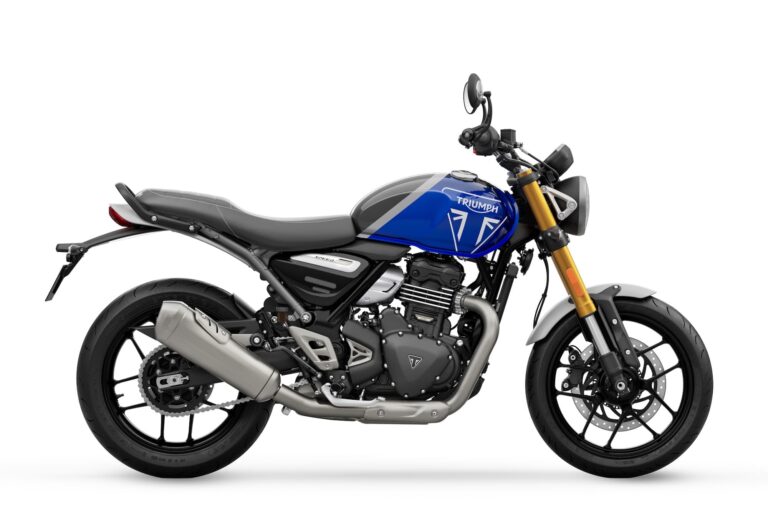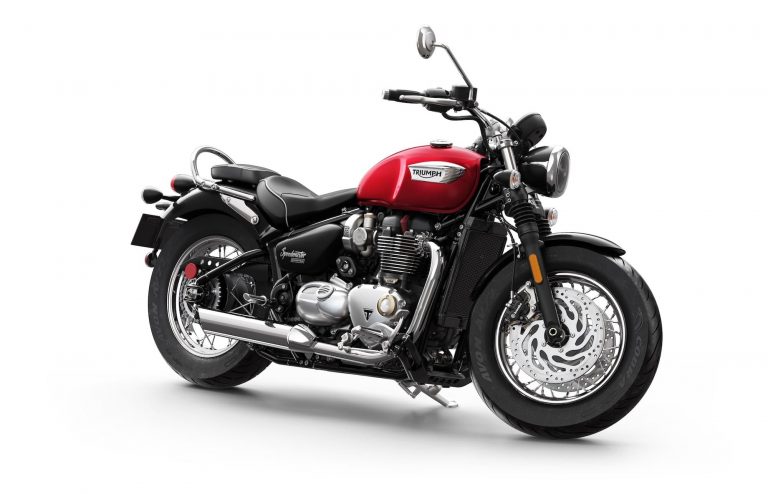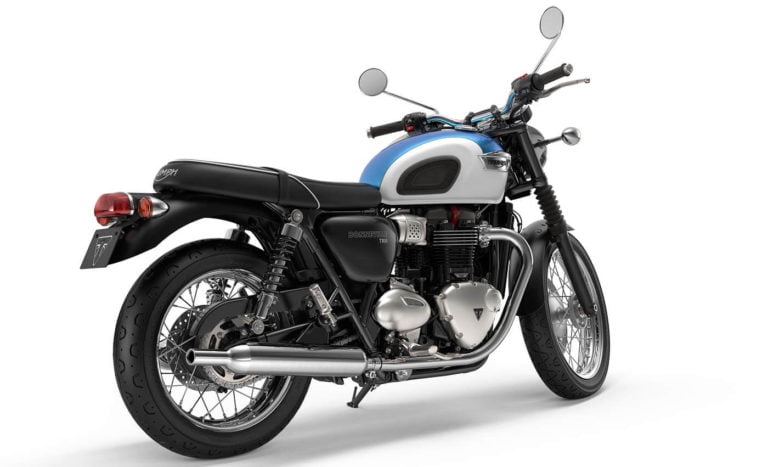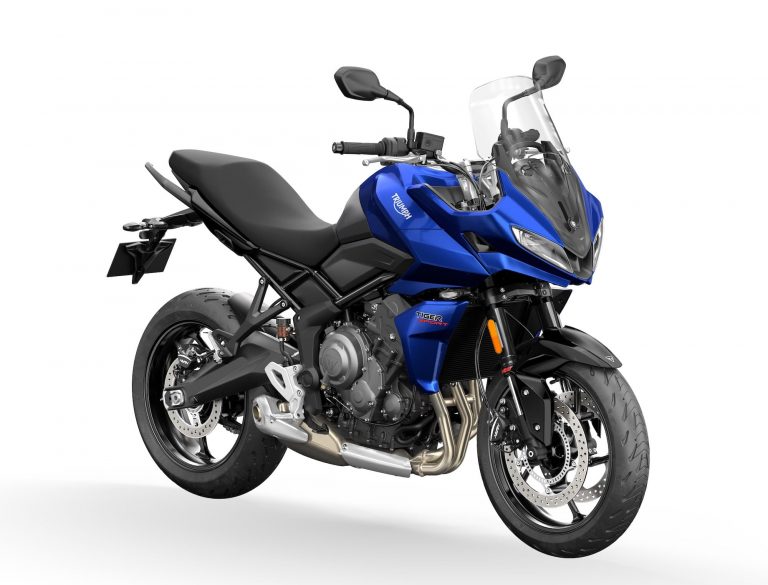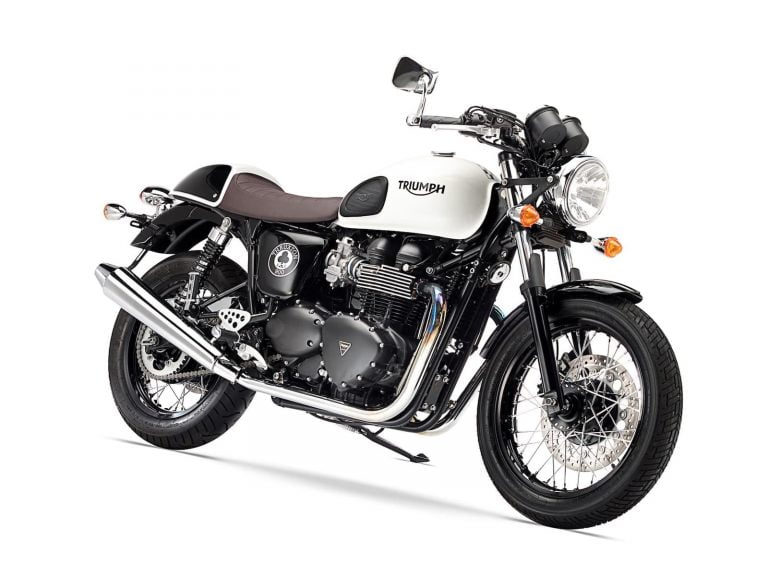Triumph Rocket III (2300cc, 2003-2018) Maintenance Schedule
This is the maintenance schedule with associated service intervals for the Triumph Rocket III Roadster motorcycles.
This is the service schedule for the earlier Rocket III (not the 2020 Triumph Rocket 3). These were motorcycles based on a 2294cc (commonly referred to as 2300cc) fuel-injected inline three-cylinder engine (a triple).
The Rocket III made different levels of power depending on the trim in which it was released. The most recent (and most popular) “Roadster” trim saw it making a peak of 109 kW (146 bhp) at 5750 rpm, and massive peak torque of 221 Nm (163 ft-lb) at 2750 rpm.
The four trim levels of the Rocket III were:
- Rocket III — the original model, released in 2004, a cruiser.
- Rocket III (Classic) — a more relaxed cruiser with floorboards and pullback handlebars.
- Rocket III Roadster — the most powerful and “sporty” bike in the line-up, with a more stripped back design, regular handlebars, and footpegs that aren’t sportbike position but still comfortable.
- Rocket III Tourer — a short lived model — classic + windscreen, panniers, backrest, and luggage rack.
- Rocket III Touring — a longer run model, also with a different frame and swingarm, plus windshield and saddlebags. The motor on the touring was tuned for more low-end torque (and a bit less top-end power).
This maintenance schedule below applies to all models of the Rocket III, as the engine was fundamentally the same in all incarnations.
This site has links from which we earn a commission (which unfortunately nobody can save, not even us). If you appreciate this research work, then please use those links. Thanks.
What you need to service the Triumph Rocket III motorcycles
The Rocket III may be a big, 2294 cc motorcycle, but it’s not difficult to service — once you get your head around the massive weight!
If you’re planning on doing it yourself — maybe you’re just changing the oil or plugs — then you’ll need the following consumables.
Firstly, you need to see if you have the basic motorcycle maintenance tools — nothing shocking, just things like a paddock stand, oil filter wrench, and so on.
| Product | Rocket III spec |
|---|---|
| Oil | The manual suggests semi or fully synthetic 15W-50 (at least) which meets specification API SH (or higher) and JSO MA, such as Castrol Power 1 4T 10W-50 (fully synthetic). |
| Oil filter | Replace the oil filter every time you change the oil. Use Triumph part number T1218001. You can also use the Hiflofiltro filter part HF204RC. |
| Spark plugs | Use NGK spark plugs with code DPR7EA-9 (sold individually). Make sure they’re gapped to 0.9mm with an appropriate spark plug gapping tool. |
| Air filter | Use Triumph part number T2202203 or K&N equivalent part TB-2204. |
| Coolant | Triumph recommends HD4X, a hybrid organic acid technology (HOAT) formulation. PEAK OET European Vehicles Blue is a good equivalent (see this analysis here). |
| Final drive oil | Use “fully synthetic 75W/90 hypoid oil that meets specification API Service Level GL5”, e.g. Mobil 1 LS 75W-90. Tighten the filler plug to 25 Nm. |
| Brake pads | Front: Triumph part T2021978 or EBC FA236HH (you need two sets) Rear: Triumph part T2022458 or FA209/2HH (one set only) |
Daily checks for the Triumph Rocket III
The below checks are checks you should do every day or before every ride. Do these along with the regular scheduled maintenance.
| Triumph Rocket III Daily / pre-ride checks |
|---|
| Engine – check for leaks |
| Throttle cable – check / adjust |
| Fuel system – check for leaks, chafing etc. |
| Cooling system – check for leaks |
| Coolant level – check/adjust |
| Clutch cable – check/adjust (Protect all cable life) |
| Wheels – inspect for damage |
| Tire wear / damage – check |
| Tire pressures – check/adjust |
| Lights, instruments, and electrical systems – check |
| Steering – check for free operation |
| Forks – check for leaks/smooth operation |
| Brake pads – check wear levels |
| Brake master cylinders – check for fluid leaks |
| Brake calipers – check for fluid leaks and seized pistons |
| Brake fluid levels – check |
| Final drive – check for oil leaks |
| Fasteners – inspect visually for security |
| Bank angle indicators – inspect visually for wear |
| Side stand / centre stand (if fitted) – check operation |
Maintenance Schedule for the Triumph Rocket III Motorcycles
The following is the list of maintenance operations and to be done on the Rocket III with a distance or time interval — whichever comes earlier.
Notes:
- Part of the below table includes checks you should do every day. Do these with the annual service too.
- Break-in schedule is omitted (it would have been broken in by now, as you’re supposed to do it at a month at latest).
- Perform the dail checks along with the scheduled maintenance below.
- Items marked [D] need dealer tools.
| mi x 1000 | 10 | 20 | 30 | 40 | 50 | 60 | |
|---|---|---|---|---|---|---|---|
| km x 1000 | 16 | 32 | 48 | 64 | 80 | 96 | Every |
| Conduct all daily / pre-ride checks (see above) | ✓ | ✓ | ✓ | ✓ | ✓ | ✓ | Year |
| Engine oil – renew | ✓ | ✓ | ✓ | ✓ | ✓ | ✓ | Year |
| Engine oil filter – renew | ✓ | ✓ | ✓ | ✓ | ✓ | ✓ | Year |
| Valve clearances – check/adjust | ✓ | ✓ | ✓ | ||||
| Air cleaner – renew | ✓ | ✓ | ✓ | ||||
| [D] Autoscan – carry out a full scan using the Triumph Diagnostic tool (if you have one) | ✓ | ✓ | ✓ | ✓ | ✓ | ✓ | Year |
| [D] ABS ECM – check for stored DTCs | ✓ | ✓ | ✓ | ✓ | ✓ | ✓ | Year |
| Spark plugs – check | ✓ | ✓ | ✓ | ✓ | |||
| Spark plugs – renew | ✓ | ✓ | |||||
| Throttle bodies – balance | ✓ | ✓ | ✓ | ✓ | ✓ | ✓ | |
| Coolant – renew | ✓ | ✓ | ✓ | 2 years | |||
| Fuel filter – renew | ✓ | ✓ | ✓ | ||||
| Headstock bearings – check/adjust | ✓ | ✓ | ✓ | ✓ | ✓ | ✓ | Year |
| Headstock bearings – lubricate | ✓ | ✓ | ✓ | ||||
| Fork oil – renew | ✓ | ||||||
| Brake fluid – renew | 2 years | ||||||
| Final drive oil level – check | ✓ | ✓ | ✓ | ||||
| Final drive oil – renew | ✓ | ✓ | ✓ | ||||
| Wheel bearings – check for wear/smooth operation | ✓ | ✓ | ✓ | ✓ | ✓ | ✓ | Year |
| Fuel and evaporative loss hoses (if fitted) – renew | ✓ |
About the Triumph Rocket III
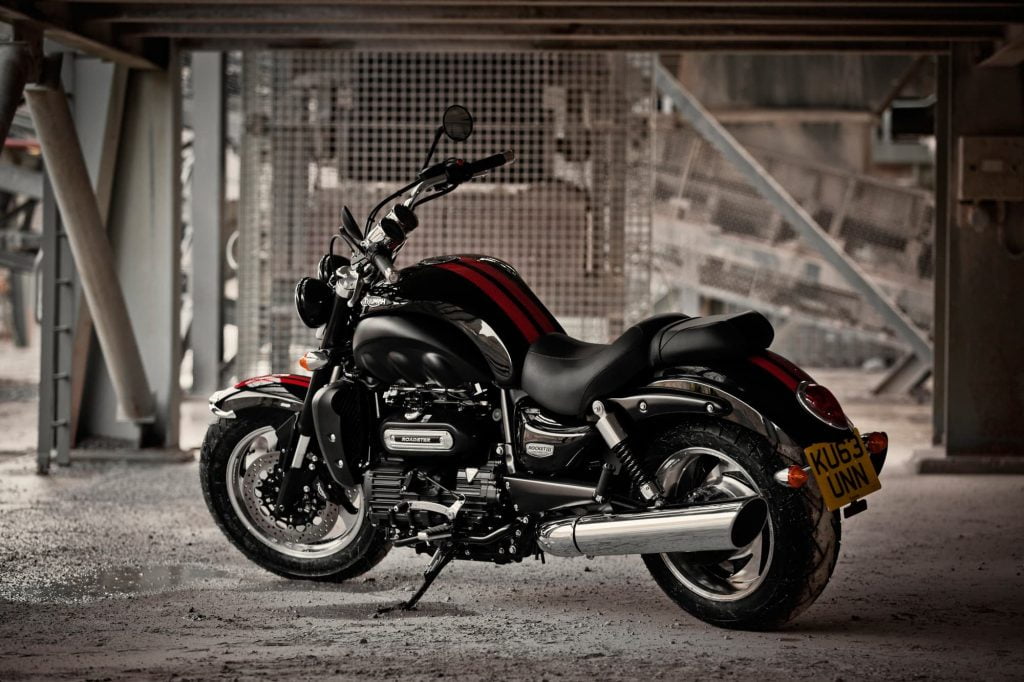
The Triumph Rocket III is a big-displacement, no-holds-barred cruiser from Triumph. Triumph has produced many interesting cruisers, but they’ve managed to hold on to the title of the manufacturer with the biggest displacement production cruisers.
The Rocket III has more displacement than the biggest factory cruisers from Harley-Davidson (the 117 ci Milwaukee-Eight which is under 2L in capacity).
In fact, when it was launched, the Triumph Rocket III Roadster had the biggest engine of any production motorcycle in the world.
The Rocket III is powered by a 2294 cc (140 cubic inch) inline three-cylinder engine. It has a mild 8.7:1 firing order, but despite this makes a whopping 108 kW (148 PS / 146 hp) at 5750 rpm, with big peak torque of 221 Nm (163 ft-lb) at 2755 rpm.
The Rocket III puts power down via a 5-speed transmission and a shaft drive.
The Triumph Rocket III’s specs have now been eclipsed by the even-bigger Rocket 3 R and Rocket 3 GT (with an even bigger motor and more impressive power and torque), but that doesn’t mean the Rocket III is small or underpowered.
The massive motor on the Rocket III certainly allowed it to live up to its moniker — particularly in the Roadster version.
The Rocket III is not (and it wasn’t) the fastest bike in the world — but that’s not the point. What you get is unbridled power that can still hit a standing quarter-mile in just 12.2 seconds to go with a top speed of 137 mph (220 km/h).
While every version of the Rocket III is different, what they all have in common is that they’re long-distance, comfortable, straight line-oriented machines. It would be a little excessive to dart down to the local shops on a giant, thumping cruiser, but once you’re out on the open highway, it makes more sense.
Having a huge size means that you have massive road presence. Cars will see you and find it difficult to ignore you.
But size also means there’s the downside of weight. Pushing it through corners takes effort (it is more of a “glide in” than “throw through the bends” feeling), and manoeuvring it around parking lots takes a little muscle and forethought.
The Rocket III was popular, and is now a niche collector bike, partly as it never really found its footing in the largely traditional (V twin-dominated ) US cruiser market.
Manual for the Triumph Rocket III
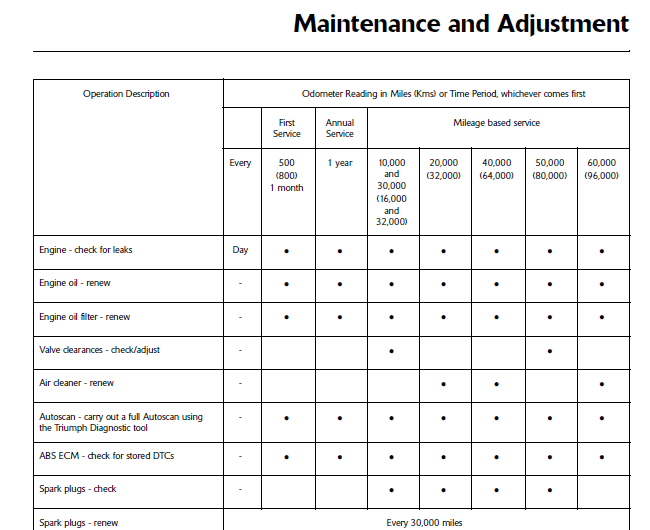
The above maintenance schedule comes directly from the user’s manual for the Triumph Rocket III Roadster, which is available on the Triumph website.
